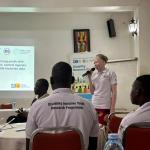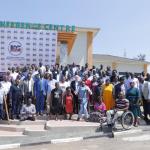Uganda has made significant strides in its commitment to inclusive development, highlighted by the recent publication of the “Leave No One Behind” (LNOB) report for 2024. This comprehensive assessment, produced through the collaborative efforts of the SDG Secretariat at the Office of the Prime Minister and UN Women in Uganda, provides a critical analysis of the inclusivity of development and humanitarian initiatives within the country.
This report represents a landmark in the country’s efforts to ensure that development benefits all sectors of society. The report meticulously examines the structural inequalities and vulnerabilities that persist among various sub-population groups, providing a data-driven basis for policy recommendations.
The primary aim of the LNOB assessment was to identify who is left behind in the development process and why. This involved a detailed analysis of factors contributing to inequality and discrimination, inherent biases, and exclusion practices that affect marginalized groups. The assessment covered various dimensions, including economic, social, and environmental vulnerabilities, and provided recommendations for enhancing inclusivity.
Key findings highlighted the persistent challenges faced by marginalized groups, including persons with disabilities, ethnic minorities, rural and urban poor, and women. The report underscores the importance of data collection and strategic partnerships to address these issues effectively.
The report emphasizes the need for continued collaboration between the government, civil society, private sector, and international partners. It calls for enhanced data collection to inform targeted interventions, strengthening governance frameworks, and increasing investment in programs that address the needs of the most vulnerable populations.
Among the recommendations are the establishment of more robust social protection systems, inclusive economic policies, and measures to mitigate the impacts of climate change and health emergencies on marginalized communities. The report also highlights the importance of ensuring equitable access to education, healthcare, and employment opportunities.
The “Leave No One Behind” report serves as a crucial resource for stakeholders committed to fostering an inclusive and equitable society in Uganda. It provides a clear roadmap for addressing the systemic barriers that hinder the progress of marginalized groups and reinforces Uganda’s commitment to achieving the Sustainable Development Goals (SDGs).




